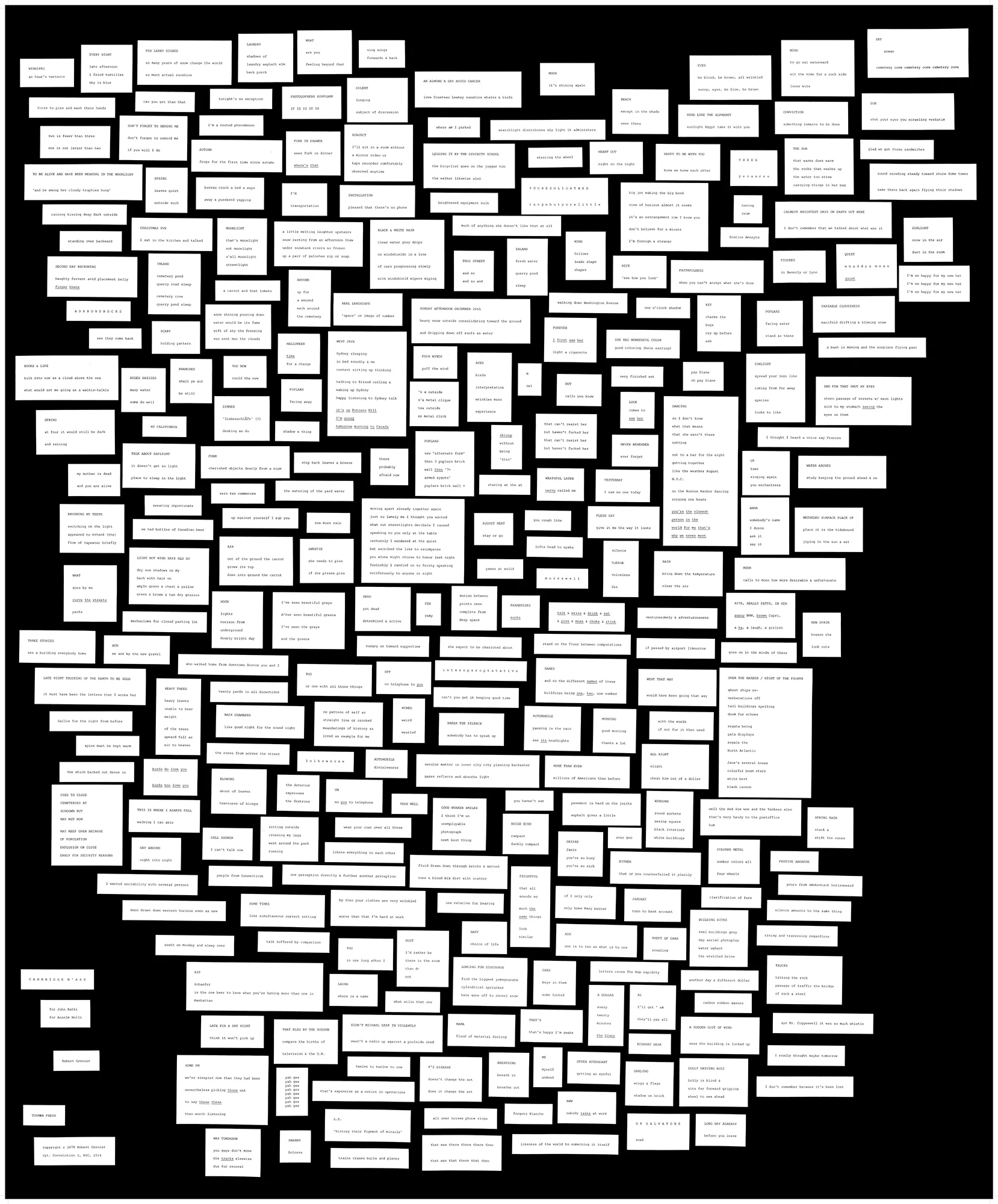Tuumba Press, 1979.
Poster, 41 x 49 in. The original Tuumba Press edition of this "poster-poem-map" that marks Robert Grenier's turn toward the visual in a stunning work comprising approximately 255 short poems, some excerpted from his 1978 work Sentences. The size of the poster was determined by the largest sheet-size the offset press would accommodate. Cambridge M'ass is dedicated to John Batki and Anselm Hollo and was pinned to the walls of poets and others across the literary world throughout the eighties and beyond and has become quite scarce in the original.
Robert Grenier
Oh, it’s hard to imagine now… Just looking at it on the floor, it looks really black and white. And I remember seeing it, actually, anew at that [retrospective] show at Southfirst Gallery [June 2013], on the wall there. And Maika Pollack, whose gallery that is, really liked it and I thought well, what is this darn thing ? It’s been in my closet or piled up behind this and that for many years…and so I hadn’t had a chance to look at it, but I saw it as this—and I see it now, especially in this new version—as really black and white…and peculiar. It’s like, “what is this Thing ?”—there used to be The Thing, and It Came From the Lagoon, or it came from…Boston Harbor perhaps ?…which, in those days...maybe it’s a little cleaner now, but it was kinda grubby and grungy, and dripping with…stuff. But I really like the way it…appears…out of the blackness of the ‘Great Beyond’, which to me is like ‘Time’, you know ? It’s…way back there, and it kind of…rattles around. I remember at the time thinking that it was sort of like…some kind of Japanese figure, like a creature in a Noh play, that started out…and then BLAGH or WHUH ! So, there it IS. But at the time, yeah, I thought, hmm... Well, after—this was after doing that box of cards Sentences, right ? —after you’ve isolated things down to one, you’re left with the problem of how to present more than one, which would involve either the ampersand, the and, or…the plus sign. So, it was part of an attempt to try to figure out how you could bring words into space…in a way that was an alternative to the speech-based poetry of the time that I was raised in. And I was thinking earlier today, what a sacrifice it really is to abandon the…not simply the voice of the poem, but the whole range of musical articulation, in sound…which had been my whole experience of poetry… Listening, as we were, to Pound’s late reading from The Cantos, it’s such a magnificent articulation of language in sound. And in my immediate experience prior to this—I was raised on the realization of speech in Robert Creeley’s work—I was so impressed by that, that it seemed that there must be something else that could be done, which would not simply repeat the long tradition of the spoken word, and poetry as sound, in that range that Zukofsky specifies, from speech to music. William Carlos Williams to John Dowland, or something like that, where the poem is sounded in so many fascinating ways… And looking back at this, I think, gee wiz, why did I abandon that ? [laughs]

No comments:
Post a Comment